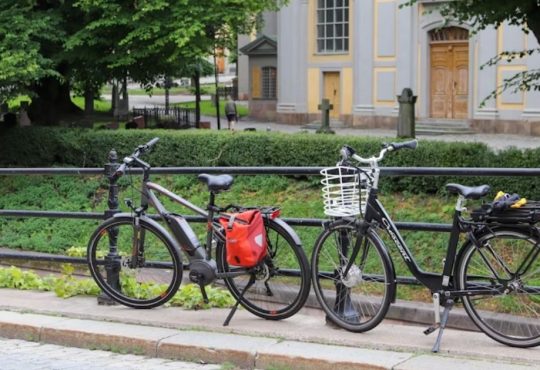Traveling internationally provides a rich opportunity to engage with diverse cultures, traditions, and lifestyles. Amid the thrill of discoveries, unintentional cultural missteps can occur, often resulting from unfamiliarity with local customs. These seemingly minor errors may cause misunderstandings or discomfort among locals. Awareness and respect for cultural differences are crucial in creating meaningful and positive exchanges.
The following guide outlines cultural faux pas to avoid in some of the world’s most visited destinations. Covering everything from dining manners to social etiquette, it highlights essential behaviors and norms to consider to experience each location with respect, understanding, and authenticity.
Cultural Faux Pas When Traveling Abroad
1. Japan: A Culture of Politeness and Precision
Japan is known for its impeccable manners, attention to detail, and respect for order. As a result, understanding and following local customs is essential for a smooth and respectful visit. Here are some common cultural faux pas to avoid in Japan:
Tipping is Not Customary
Tipping is not customary in Japan and may even be viewed as disrespectful, contrasting with the standard practice in many Western countries. Leaving a tip can be seen as an insult in restaurants, taxis, and hotels, implying that the service wasn’t good enough to be included in the price.
What to Do Instead: Show your appreciation by saying “arigatou gozaimasu” (thank you) politely and respectfully. Japanese hospitality, or “omotenashi,” is about providing excellent service without expecting anything in return.
Handling Chopsticks Improperly
Chopsticks are essential to Japanese dining etiquette, and improper use can be seen as disrespectful. Some common mistakes include sticking chopsticks upright into a bowl of rice (which resembles a funeral ritual), passing food directly from one set of chopsticks to another (which mimics a funeral tradition), or pointing with chopsticks.
What to Do Instead: When not in use, place your chopsticks neatly on the chopstick rest. Avoid playing with them or crossing them. Use them to pick up food and eat with grace and respect.
Speaking Loudly or Being Too Direct
Japan values harmony and politeness; being loud or overly direct in conversation can make others uncomfortable. Public behavior tends to be more subdued, especially in public transportation or restaurants.
What to Do Instead: Keep your voice at a moderate volume, and avoid interrupting or being confrontational in conversations. Use polite phrases such as “sumimasen” (excuse me) and “onegai shimasu” (please).
2. France: A Country Known for Its Sophistication and Etiquette
French culture strongly emphasizes pride in language, cuisine, and heritage, and locals often value thoughtful engagement with their traditions. As a result, travelers should be aware of several social and cultural norms to avoid unintentionally offending locals.
Failing to Greet People Properly
In France, exchanging greetings is a vital aspect of social interaction, reflecting respect and politeness in daily encounters. You must greet people when entering shops, cafes, or public spaces. Not greeting someone properly can be seen as impolite.
What to Do Instead: Always greet people with “Bonjour” (Good day) or “Bonsoir” (Good evening) when entering shops or restaurants. A simple “Salut” (Hello) or “Ça va?” (How are you?) is commonly used in informal settings among friends, family, or acquaintances, often as a casual way to check in or start a conversation.
Talking About Money or Politics
Discussing sensitive topics like money or politics can be awkward or even offensive in France, especially if you don’t know the person well. These topics are often seen as private matters and should be cautiously approached.
What to Do Instead: Focus on lighter topics such as food, art, or travel. If politics or money does come up, avoid being overly opinionated, and be ready to listen rather than dominate the conversation.
Not Respecting Mealtimes
The French take their meals seriously, especially lunch and dinner, which are often long and leisurely. It is considered impolite to rush through a meal or to start eating before everyone at the table has been served.
What to Do Instead: Wait for everyone to be seated and for the host to start the meal. Enjoy the meal leisurely and engage in conversation, as meals are a social event. Using utensils properly is also essential (knife in the right hand, fork in the left).
3. Italy: A Land of Passion and Tradition
Italy has rich cultural traditions, vibrant cities, and breathtaking landscapes. While it’s known for its warmth and hospitality, it also has specific social rules that should be respected to avoid making cultural missteps.
Overdressing or Underdressing for Meals
Meals in Italy are treated with great importance, particularly in formal settings where dining is seen as a time-honored social ritual rather than a rushed affair. Wearing casual or sloppy clothes to a restaurant, especially for dinner, can be seen as disrespectful.
What to Do Instead: Dress appropriately for the occasion. Smart casual attire is generally acceptable for casual meals, but slightly more sophisticated clothing is preferred for more formal restaurants.
Ordering a Cappuccino After 11 a.m.
In Italy, cappuccinos are a breakfast drink, typically enjoyed before 11 a.m. Ordering a cappuccino after this time can be considered a faux pas, especially in more traditional settings.
What to Do Instead: After 11 a.m., choose an espresso or a macchiato instead of a cappuccino. Italians down their coffee while standing at the bar, not lingering over a cup for an extended period.
Misunderstanding the “Passeggiata”
The “passeggiata” is an Italian tradition of taking a leisurely evening stroll, typically after dinner. While it may seem like a casual walk, it’s a social ritual, and it’s essential not to interrupt or rush through the process.
What to Do Instead: If you’re partaking in the passeggiata, take your time, enjoy the scenery, and engage with locals. Avoid rushing or acting hurriedly, as it can be seen as disrespectful to the slow-paced tradition
4. India: A Land of Diversity and Spirituality
India is a vast and diverse country, rich in history, cultural welcome, and spirituality. While it’s a popular tourist destination, it has a complex social fabric with specific cultural customs and behaviors. Natural beauty makes it an ideal destination with its reputation vendors that must be respected to avoid offending locals.
Public Displays of Affection
Public displays of affection (PDA), such as kissing, hugging, or holding hands in public, are generally frowned upon in India, especially in more conservative or rural areas.
What to Do Instead: Be mindful of your behavior in public spaces. If you’re in a more limited, it offers a perfect blend of excitement and relaxation, both peace.
In a big city like Delhi or Mumbai, PDA might be more acceptable, but it’s always best to err on the side of caution.
Pointing or Touching People with Your Feet
In India, the feet are considered the lowest part of the body and should never be used to point at people or objects. Touching someone with your feet, even accidentally, is considered disrespectful.
What to Do Instead: Use your hands to point or gesture, and always avoid touching people with your feet. If you sit cross-legged, be mindful of how your feet are positioned around others.
Wearing Revealing Clothing
Although India is becoming more modern, modest dress remains essential, particularly when visiting religious sites. Wearing revealing or overly casual clothing may be considered disrespectful.
What to Do Instead: Wear modest clothing, particularly when visiting temples, mosques, or rural areas. Women should cover their shoulders and knees, while men should avoid wearing sleeveless shirts in sacred locations.
5. Middle East: A Region of Tradition and Respect
The Middle East is a region steeped in history, with cultural and religious practices that travelers must understand and respect. Social norms in countries like the United Arab Emirates, Saudi Arabia, and Egypt can vary, but certain customs are shared across many countries in the region.
Dressing Inappropriately in Religious Sites
The Middle East has many holy sites, including mosques, shrines, and religious landmarks.
What to Do Instead: Both men and women should cover their arms and legs, avoiding tight or revealing clothing. In some religious sites, women may also need to wear a headscarf.
Disrespecting Ramadan
During Ramadan, the Islamic holy month, Muslims fast from dawn until dusk, refraining from food, drink, and other physical needs during the daylight hours.
What to Do Instead: Be discreet with food and drink during Ramadan, especially in public areas. It’s okay to eat in private, but in public, respect the fasting customs of the local people.
Giving a Firm Handshake to Women
In numerous Middle Eastern cultures, physical contact between men and women who are not family members is often restricted. A firm handshake with a woman may be viewed as disrespectful or intrusive.
What to Do Instead: Wait for the woman to extend her hand if she’s comfortable with physical contact or offer a slight nod or bow as a sign of respect.
The Importance of Cultural Sensitivity in Travel
Every country has cultural nuances; respecting these differences is the best way to enjoy your travels. Understanding and adhering to local customs and etiquette helps you avoid faux pas and fosters a more meaningful connection with the people you meet.
By learning about your destinations’ customs and cultural norms, you can become a more thoughtful, respectful traveler and gain a deeper appreciation for the diverse world around you. So, whether in France, India, or the Middle East, keeping cultural sensitivity at the forefront of your travel plans will help you have a more enriching and positive travel experience. Happy travels!





